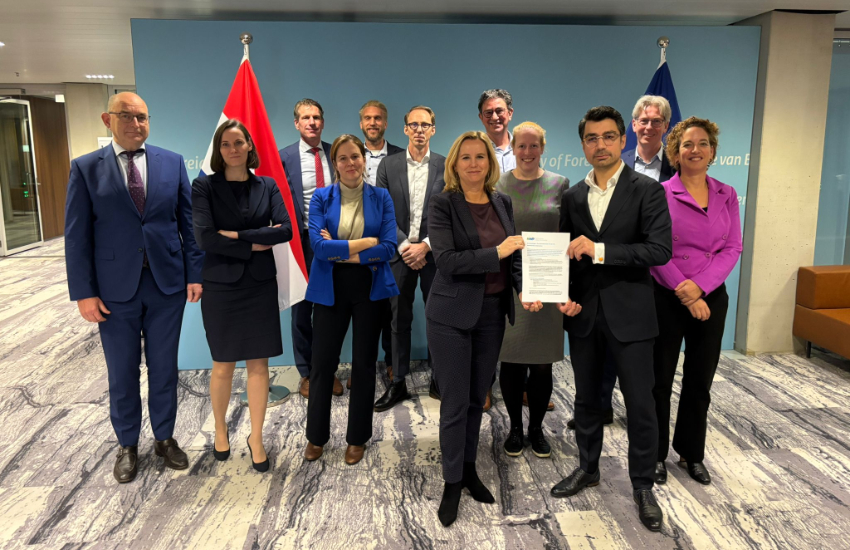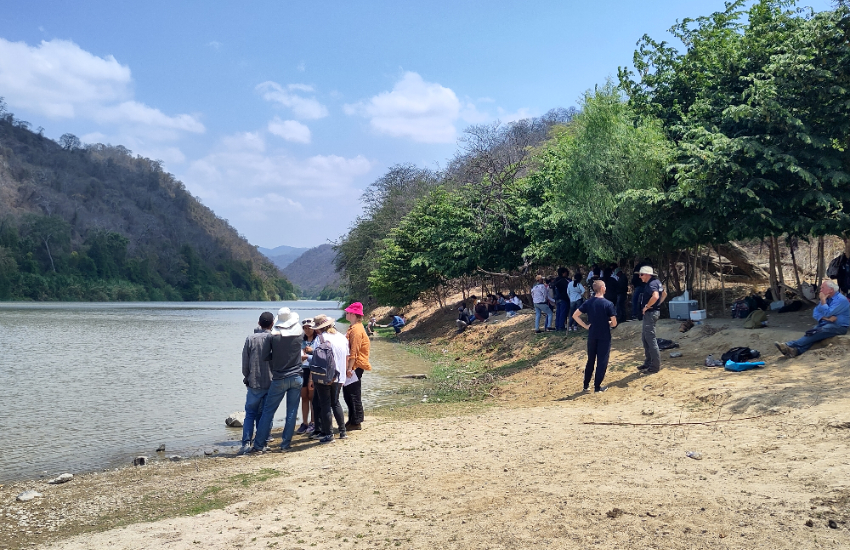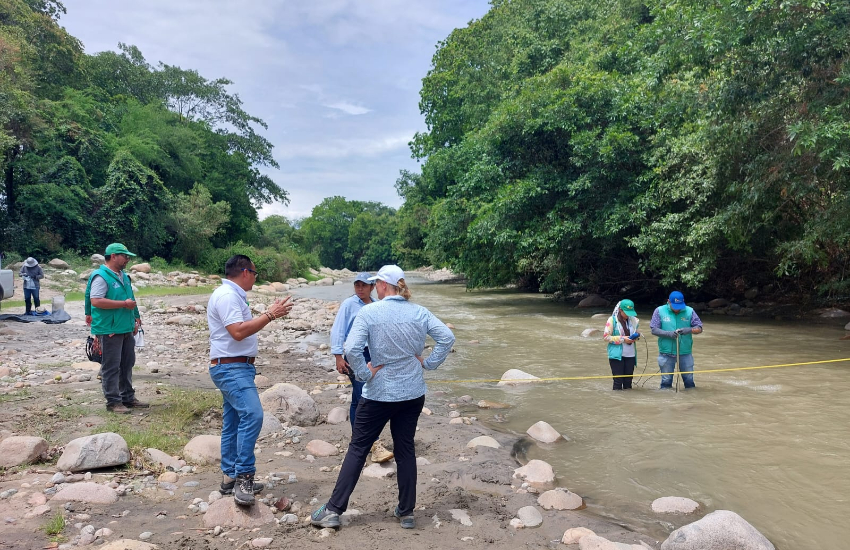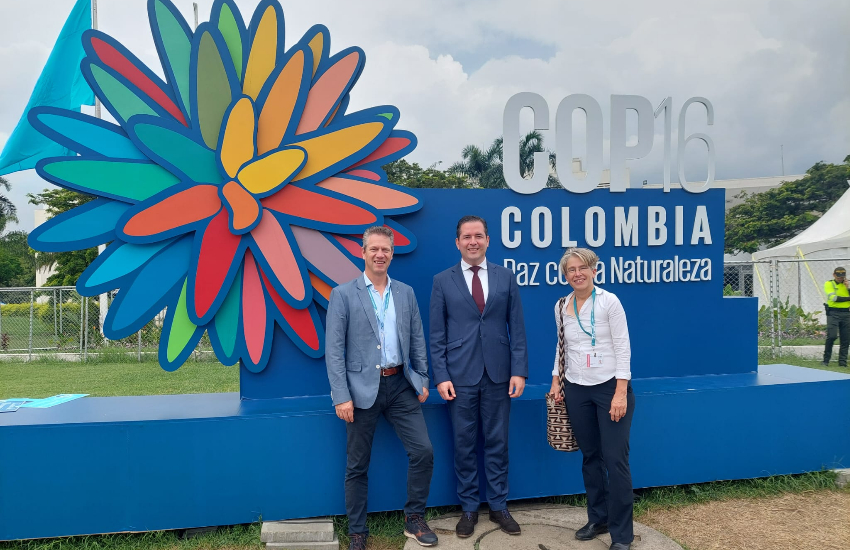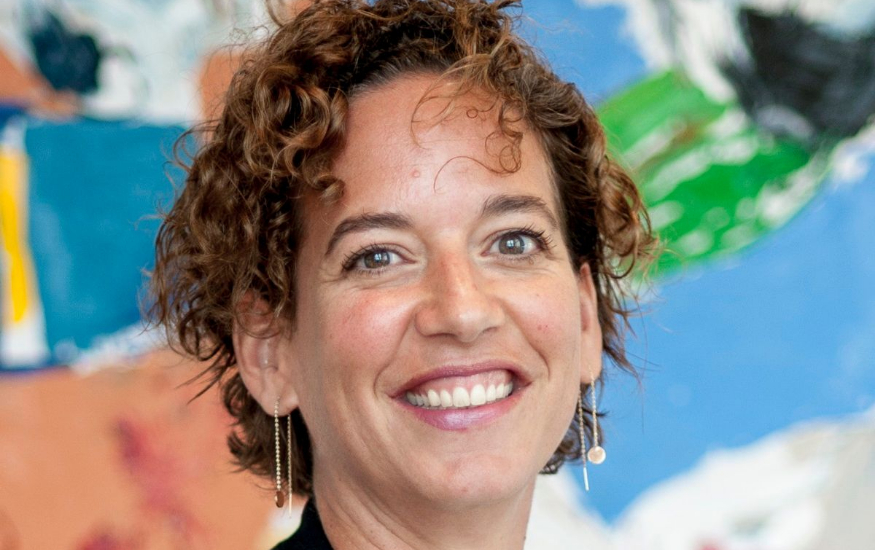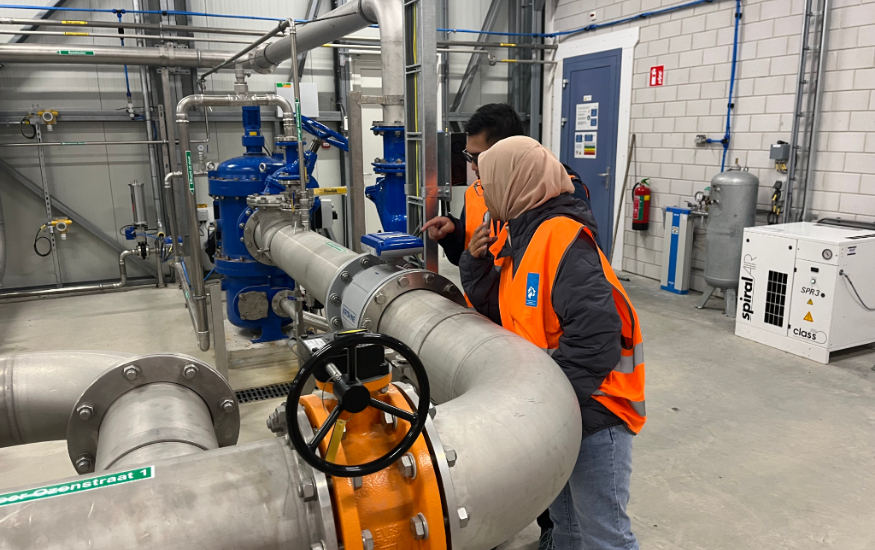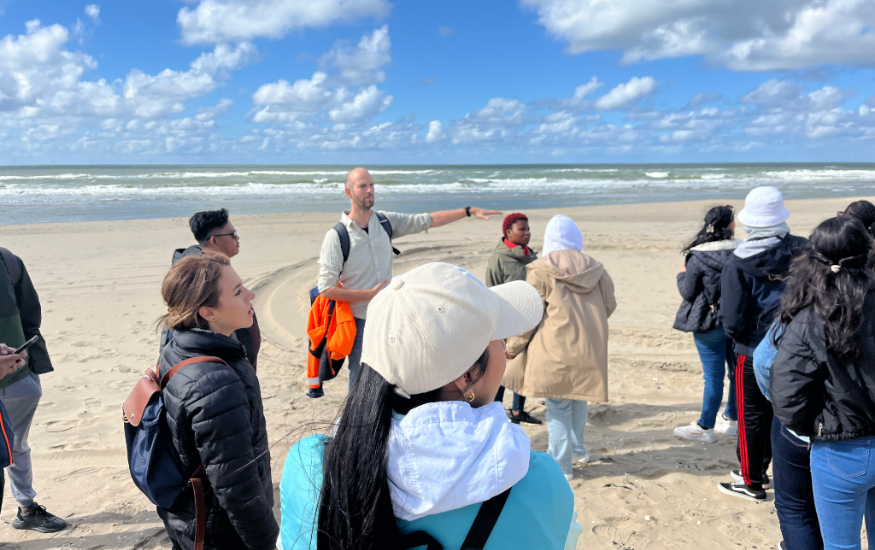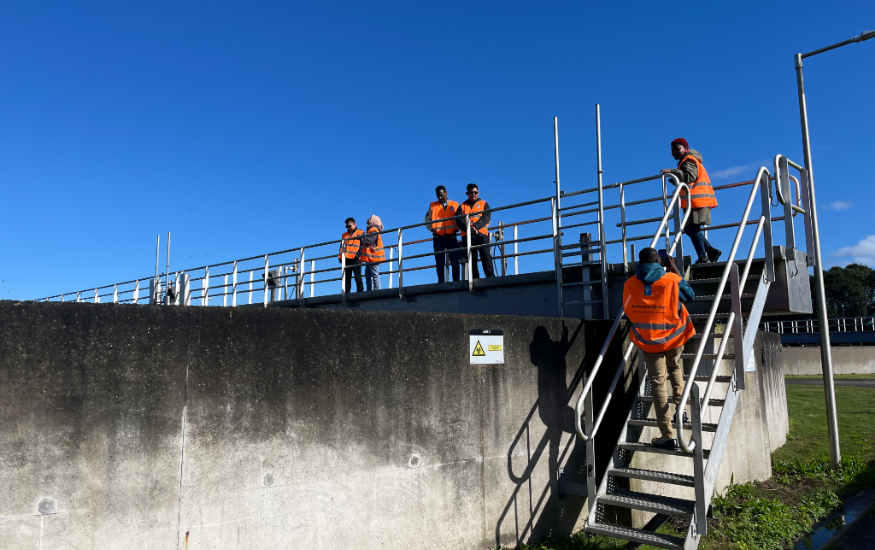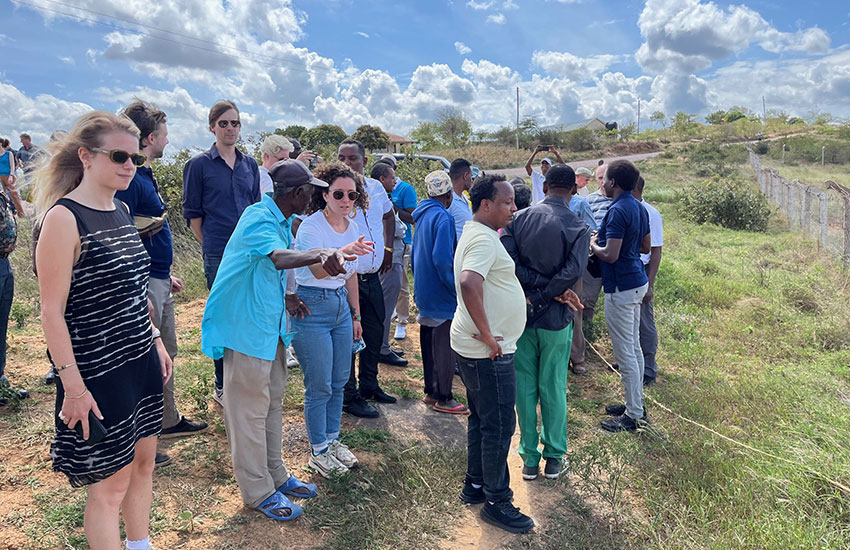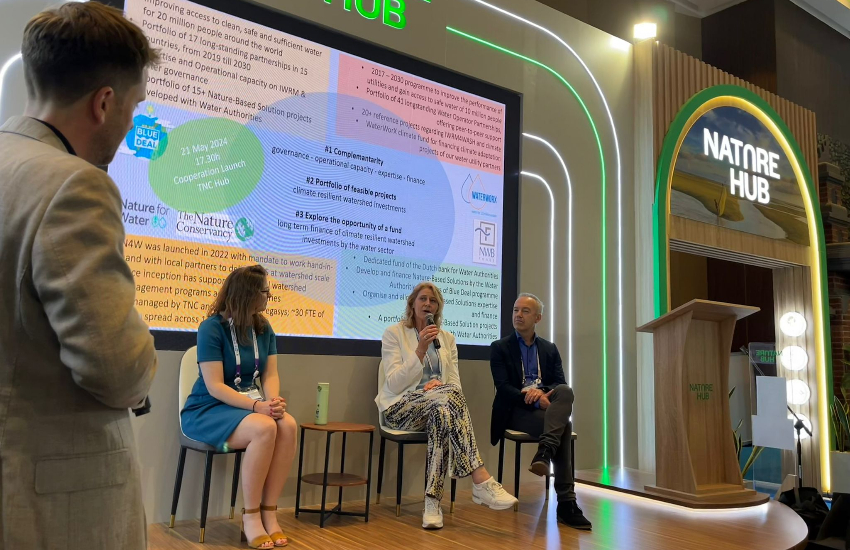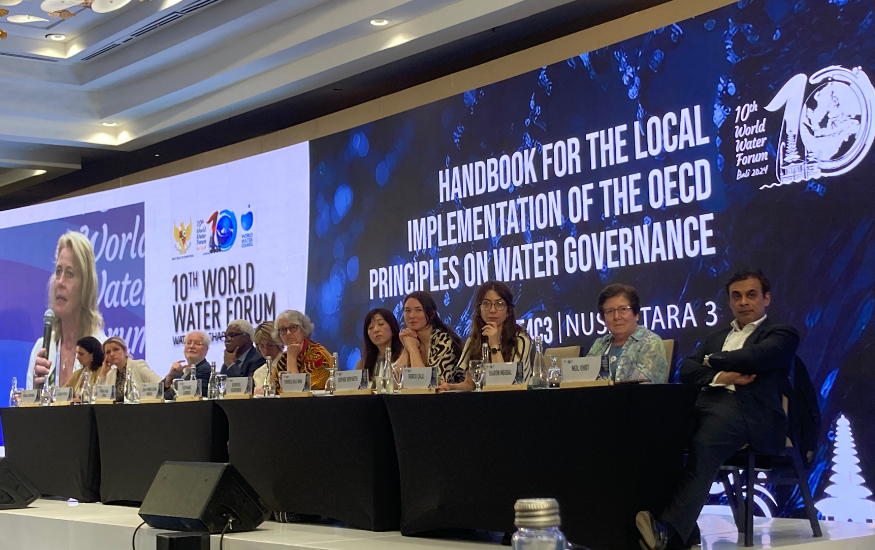Partnership Blue Deal Indonesia, Tangerang, focuses on stakeholder engagement in the development of a water retention project. Since September 2024, the partnership has Young Expert Adithyar Rachman in its team who led a significant stakeholder meeting.
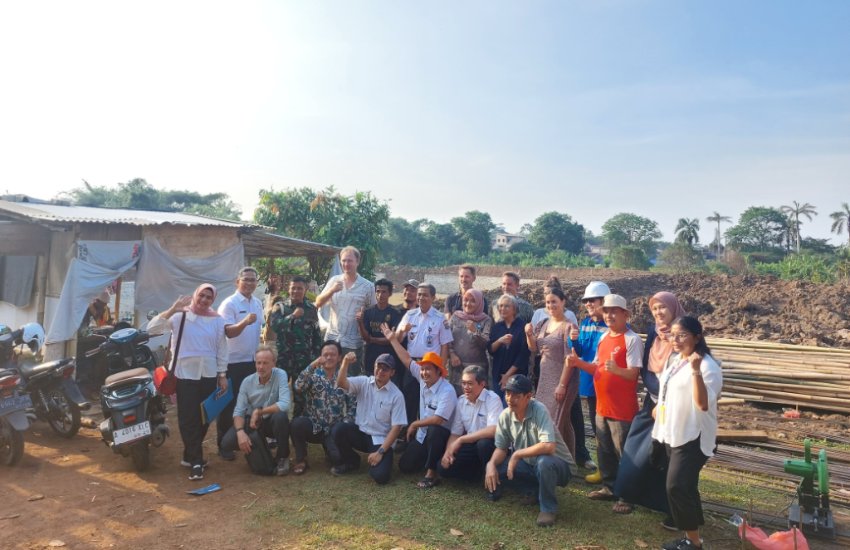
Over the past six months a stakeholder workshop took place, which aimed at engaging local communities around the planning of the Tandon Puri Tigaraksa. Tandon means ‘reservoir’ in Bahasa. It is one of the most significant activities in the YEP Programme of the Young Expert Adithyar in Indonesia, in collaboration with the Blue Deal Tangerang project. It is currently being developed in two phases. The first phase focuses on constructing the flood prevention reservoir, to help manage excess rainwater and mitigate flood risks. Once this stage is completed, the second phase involves designing the surrounding area to serve as a green open space with recreational facilities for the local community.
Recognising the importance of community participation, they actively engaged local residents to determine the best ways to utilise the space to meet their needs. This inclusive approach ensures direct benefits to the community from the project. In addition, it fosters a sense of shared responsibility. Residents are actively involved in the planning process to encourage long-term maintenance efforts, and the reservoir remains clean and well-preserved. To facilitate this engagement, a workshop was held at the reservoir site. The community was able to share their ideas through this hands-on opportunity.
Workshop process and community participation
The goal of the workshop was to gather insights from the community regarding their expectations for the reservoir area. A total of 15 participants from the local community attended. The discussions proved highly productive, and it generated important input to shape the next phase of the project.
The participants were divided into small groups. They focused on three key questions:
- What is needed to bring this plan to life? – Identifying essential infrastructure, facilities, or resources required to successfully develop the area.
- How can it be maintained? – Exploring strategies to ensure the space remains clean, functional and sustainable over time.
- How can the community take responsibility for maintenance? – Encouraging residents to take an active role in maintaining the space through community initiatives, local regulations, or organized efforts.
These discussions provided a platform for community members to have their thoughts and concerns heard. Also, it fostered a sense of ownership over the project’s future.
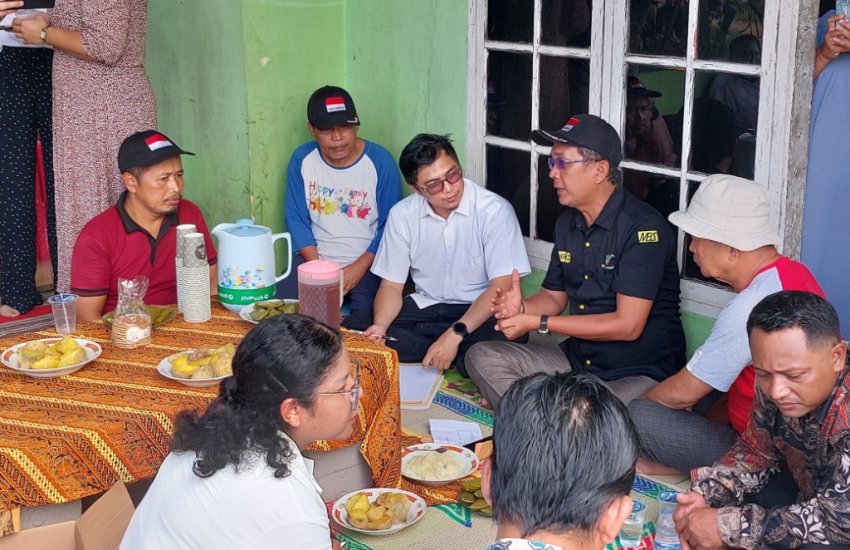
The role and contributions of Yepper Adithyar Rachman
Adithyar is part of the Young Expert Programme and started in September, 2024. He played a key role in facilitating communication between various stakeholders, including representatives from the Blue Deal Team Tangerang, local village leaders, and community members. Furthermore, government officials from the Planning Agency, the Public Works and Water Resources Agency, and the Head of Tigaraksa District were present. The role of Yepper Adithyar was to assure that the community’s feedback was effectively integrated into the planning.
Adithyar shares: “My participation in the Young Expert Programme was instrumental in this process. The skills and experience I gained, particularly in stakeholder engagement and effective communication, helped me navigate the complexities of balancing technical feasibility with community interests. YEP strengthened my abilities in active listening, summarizing and digging deeper (LSD) in the discussions. All of which were crucial in making the workshop a success.”
By involving the community early in the process, it was ensured that the reservoir serves as a flood mitigation measure. Furthermore, it becomes a shared space that residents actively maintain and take pride in. Therefore, this collaborative effort strengthens community ownership and lays the foundation for sustainable water management in the region. Many more Blue Deal partnerships pay attention to taking the local approach as a basic foundation for any development, by including communities and water users in every step of a planning process. They are supported in this by a dedicated Focal Point for Social Inclusion.
Adithyar concludes: “Besides the valuable teamwork within our Blue Deal partnership, in this occasion I wish to express special thanks to the Blue Deal Tangerang team members ibu Mia and ibu Thiresia together with Michelle Cornelissen from the Dutch Water Authorities. They undoubtedly contributed in making this stakeholder meeting a success.”

